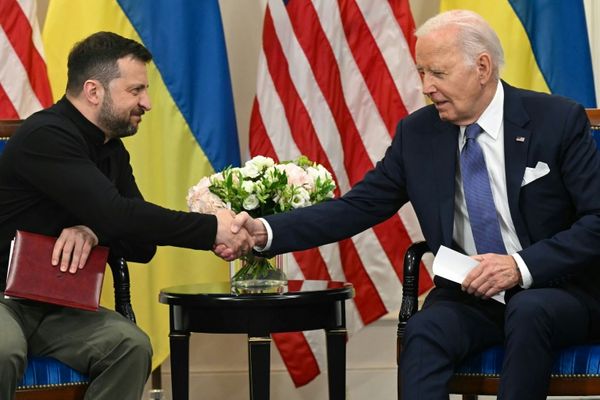
More than a century after its introduction, the Royal British Legion poppy has had a plastic-free makeover in its first major redesign in a generation.
With the launch of the 2023 poppy appeal on Thursday details of the symbol of remembrance are unveiled, revealing a paper poppy created from renewable sources including half from offcuts from the production of takeaway coffee cups.
Gone is the green plastic stem and centre. The new poppy, which has been three years in development, has a centre embossed with “poppy appeal” and a leaf with a crease. It uses the red and green dyes made by expert craftspeople using a secret recipe of dyes only used for the Royal British Legion poppy.
There have been more than 10 versions of the poppy since the first appeal in 1921. The original was adorned with red silk or cotton with a green stalk and a small banner that read “British Legion Remembrance Day” on one side and “Made by the women and children from the devastated areas of France” on the other. A British-made version created by Royal British Legion founder Earl Haig was also available with the words “Haig Fund” stamped in the middle.
Wartime austerity in the 1940s brought the brief introduction of the cardboard poppy. In the 1950s the leaf disappeared, while in the late 1960s and 1970s multiple petals were replaced by a one-piece petal and a plastic stem; and fabric was phased out after silk and cotton poppies bled when wet.

In 1987, the poppy regained its leaf after public demand and in 1994, the Haig Fund logo was replaced with “poppy appeal”.
The poppy appeal is backed by celebrities including actor Joanna Lumley, singer and presenter Mica Paris, and broadcaster Gyles Brandreth.
The Royal British Legion produces 170,000 poppies a day to meet the public demand. It worked with scientists at University College London to assess the environmental impact of the new poppy and ensure its sustainability. Their analysis revealed that the new poppy would reduce carbon emissions by 40% compared with the traditional poppy, the RBL said.,
The poppy appeal director, Andy Taylor-Whyte, said: “We want to encourage as many people as possible to get a poppy this year and show their gratitude and support to those in the armed forces whose service and sacrifice should never be forgotten.
“We’re so proud that this year, we have our new plastic-free poppy too, so that the public can wear this poignant symbol of Remembrance, with less impact on the environment.
“Since the first poppy appeal in 1921 to today, public donations have provided a lifeline for service people and their families, and last year, we helped more than 27,000 people in the armed forces community.”







